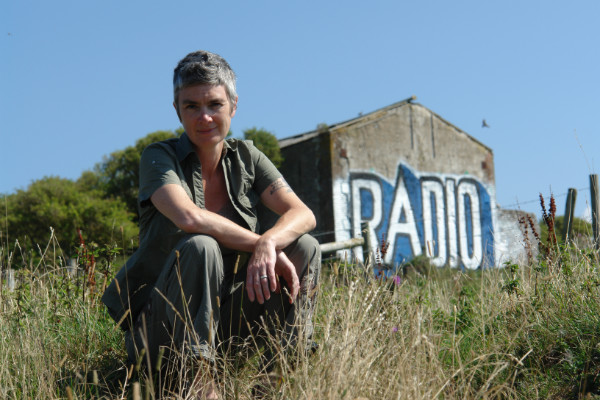Thursday 10 June 2021
Radio Drama with Anita Sullivan

Radio drama: how to get between people’s ears. Audio as point-of-view, location as character, creating sound-pictures, using voice and narrative. Bring materials to write.
Anita is an award-winning writer of radio and theatre drama. All of her 60+ scripts have been staged or broadcast, many with repeat productions and tours. She has been commissioned by Radio 3, Radio 4, RSC, NT, and regional theatres from Plymouth to Glasgow. In 2019 Anita won three New York Festivals Radio awards and wrote ‘Moon’ for Radio 4’s Apollo 11 anniversary. She will have two theatre shows touring this summer/autumn. www.anitasullivan.co.uk
You can listen to Anita's adaptation of Heart of Darkness by Joseph Conrad here.
************************
Summary of the meeting
Anita has written more than sixty plays which have been performed on radio or on stage.
She began by talking about the importance of location and point of view, and different ways to create them in radio drama.
The actors can be recorded in a soundproof booth, or on location. If the former usually most of the audio scenery (background sounds, music) is added later. Silent movement of the audio crew, who hold the microphones, can replace actors’ movement. A voice that recedes = character exiting, and vice versa. The voice that does not move away from the microphone will appear central, and controls the listener’s POV, (which can be inside someone’s head). Binaural sound (3D stereo) gives more options for the apparent direction of character movement.
As an exercise we were given five minutes to write a short scene. Anita then challenged us as she reminded us of all the points we could consider, including: location – city/country, outside/inside, time of day, period – contemporary or not, private or being overheard (v powerful), gender, age of protagonists, who does the microscope stick with?
Finally we were asked, if we changed just one of these things, without changing the dialogue, what difference would it make?
Anita shared some actual radio scripts (more can be found at bbc.co.uk/writersroom). She told us the components of a script were heading, location description, characters’ names, dialogue, action, sound direction, performance direction.
She told us about some of the nuts and bolts of writing professionally for radio – and audiobooks, and podcasts and drama podcasts. Things to be aware of include – BBC v independents , station slots and genres, the commissioning process, research and rewrites, writer in the studio requests, contracts, intellectual property, agents, Society of Authors and the Writers’ Guild.
Further points made by Anita:
Radio is such an intimate medium that an unreliable narrator can feel like a betrayal – something to be aware of.
There are different flavours of narration – are you telling history or finding out?
Use some silence – all drama frames some change to the characters, and thought happens in silence.
Try and avoid blatant exposition – if it has to happen, create obstacles – shout across a cliff face, dodgy phone line etc
There have to be rewrites – but in the editing process, while respecting the professionalism of editors and directors, make sure you hold onto the heart of your narrative.
If source material exists in any form - USE IT! Even actually use it – real voices, spliced into play, verbatim reports.
Don’t insist on ideal conditions to write, grab any time/space/opportunity. Train yourself to drop into current work anytime, anywhere.
Being paid for your work legitimises the time you spend on it (and fees are set by S of A and WG).
A deadline (even if self-imposed) creates the pressure an author needs to keep writing, and to keep ideas alive.